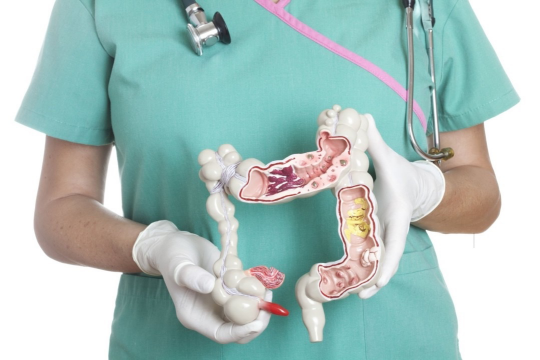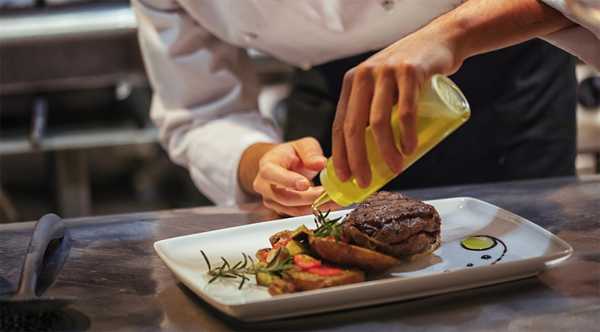日本の中古車査定で最高額を出す秘訣!プロが教える成功事例とおすすめプラットフォーム5選
The Gentle Colitis Diet: How to Soothe Symptoms and Promote Healing
Colitis, an inflammation of the colon, can result in a range of uncomfortable symptoms, including abdominal pain, diarrhea, bloating, and fatigue. For individuals living with colitis, managing flare-ups effectively often involves a combination of medication, lifestyle adjustments, and dietary changes. The right diet can significantly reduce symptoms, ease discomfort, and help support the healing of the gut lining. In this article, we’ll explore the foods that can calm colitis flare-ups and those to avoid during times of inflammation.
Colitis, an inflammation of the colon, can result in a range of uncomfortable symptoms, including abdominal pain, diarrhea, bloating, and fatigue. For individuals living with colitis, managing flare-ups effectively often involves a combination of medication, lifestyle adjustments, and dietary changes. The right diet can significantly reduce symptoms, ease discomfort, and help support the healing of the gut lining. In this article, we’ll explore the foods that can calm colitis flare-ups and those to avoid during times of inflammation.

1. What is Colitis?
Colitis refers to the inflammation of the colon, which can arise from several conditions, including:
- Ulcerative colitis: A form of inflammatory bowel disease (IBD) that affects the colon and rectum.
- Crohn's disease: Another type of IBD that can affect any part of the gastrointestinal tract.
- Infections: Bacterial, viral, or parasitic infections can also cause colitis.
- Ischemic colitis: A condition in which reduced blood flow to the colon leads to inflammation.
- Allergic reactions: In some cases, food allergies can trigger colitis.
During flare-ups, the digestive system becomes more sensitive, and consuming the wrong foods can exacerbate inflammation. To manage symptoms effectively, it’s essential to focus on a soothing, easy-to-digest diet.
2. Soothing Foods for Colitis Flare-Ups
-
Low-Fiber and Easily Digestible Carbs
Fiber is important for digestive health, but during a colitis flare-up, high-fiber foods can irritate the inflamed colon. Low-fiber foods reduce stress on the digestive system and are easier to tolerate.
- White rice: A bland, easily digestible carbohydrate that is gentle on the digestive tract.
- Plain white pasta: Another low-fiber option that won’t irritate the colon.
- Refined white bread: Unlike whole grains, refined bread is lower in fiber and gentler on the stomach.
- Cooked potatoes: Soft, well-cooked potatoes without the skin are easy to digest and provide essential nutrients.
- Plain crackers: Simple, low-fiber crackers made from white flour can provide comfort without irritation.
-
Lean Proteins
Protein is vital for tissue repair, especially during flare-ups when the body is healing from inflammation. However, certain protein sources can be harsh on a sensitive gut. Opting for lean, easily digestible protein options can help maintain strength without worsening symptoms.
- Skinless chicken: Grilled, baked, or boiled chicken is an excellent source of lean protein that is gentle on the gut.
- Turkey: Lean turkey, like chicken, is easy to digest and provides a good source of protein.
- Eggs: Soft-boiled or scrambled eggs are easy to digest and a good protein option during flare-ups.
- Tofu: For vegetarians or those looking to reduce animal protein, tofu is a plant-based protein that is mild on the digestive system.
-
Cooked Vegetables
During a flare-up, raw vegetables can be difficult to digest, leading to bloating and cramping. However, cooked vegetables are often easier on the digestive system. Focus on well-cooked, soft vegetables to avoid irritation.
- Carrots: Soft, well-cooked carrots are rich in vitamins and gentle on the stomach.
- Zucchini: Mild and easy to digest, zucchini can be cooked until soft for a soothing option.
- Pumpkin: A great option for colitis sufferers, pumpkin is rich in nutrients and easy to digest when cooked.
- Sweet potatoes: These provide fiber and vitamins, especially when peeled and cooked well, making them a soothing choice.
-
Healthy Fats
Healthy fats, when consumed in moderation, can reduce inflammation and help heal the gut lining. Choose sources of fat that are easy to digest and have anti-inflammatory properties.
- Olive oil: Rich in anti-inflammatory compounds, olive oil is a great cooking fat or topping for cooked vegetables.
- Avocados: Soft and nutrient-dense, avocados provide healthy fats that are gentle on the stomach.
- Coconut oil: Coconut oil, rich in medium-chain triglycerides (MCTs), is often easier to digest and can support gut health.
-
Bone Broth
Bone broth is incredibly nourishing and can help promote gut healing. It is rich in collagen, gelatin, and amino acids like glutamine, all of which contribute to the repair of the gut lining. Bone broth can soothe the digestive tract and provide hydration and essential nutrients during flare-ups.
3. Hydrating Fluids for Colitis Relief
Staying hydrated is essential during colitis flare-ups, especially as diarrhea and dehydration can be common. The right fluids can help replenish lost electrolytes and soothe the digestive system.
- Water: The most straightforward and essential option to keep your body hydrated.
- Herbal teas: Chamomile, ginger, and peppermint teas are soothing to the stomach and can help reduce nausea and bloating.
- Clear broths: Broths, including bone broth, vegetable broth, and chicken broth, are hydrating and provide gentle nutrition.
- Electrolyte drinks: For those losing significant fluids, electrolyte drinks (without added sugars or artificial sweeteners) can help replenish lost minerals.
4. Foods to Avoid During a Colitis Flare-Up
Certain foods can trigger or worsen colitis symptoms, especially during flare-ups. Avoiding these foods is key to managing inflammation and promoting healing.
-
High-Fiber Foods
During flare-ups, high-fiber foods can be difficult to digest and may irritate the inflamed colon.
- Raw fruits and vegetables: These can cause bloating, gas, and discomfort due to their fiber content.
- Whole grains: While healthy in general, whole grains (such as whole wheat bread, brown rice, oats) can be harsh on the intestines during flare-ups.
- Legumes and beans: High in fiber and often cause gas, bloating, and discomfort.
-
Dairy Products
Many individuals with colitis also have lactose intolerance, which can worsen symptoms like diarrhea, cramping, and bloating. To ease digestion during flare-ups, consider eliminating or limiting dairy.
- Milk: Whole, skim, or low-fat milk can be hard to digest.
- Cheese: While hard cheeses may be more easily digested, most cheeses can exacerbate symptoms.
- Ice cream: High in fat and dairy, ice cream can irritate the gut during flare-ups.
-
Fatty and Fried Foods
Fried foods and those rich in unhealthy fats can cause inflammation and irritation in the digestive system.
- Fried foods: French fries, fried chicken, and other deep-fried foods can exacerbate colitis symptoms.
- Processed meats: Sausages, bacon, and deli meats are often high in unhealthy fats and additives, which may trigger symptoms.
-
Spicy Foods
Spices like chili, hot peppers, and curry can irritate the intestines and stomach, leading to discomfort. Avoid spicy foods and strong condiments like hot sauce during flare-ups.
-
Caffeinated Beverages and Alcohol
- Caffeine: Coffee, tea, and caffeinated sodas can irritate the digestive system, increasing motility and worsening diarrhea and cramping.
- Alcohol: Alcohol can cause dehydration and irritation to the gut, triggering inflammation and worsening symptoms.
5. Additional Tips for Managing Colitis Flare-Ups
- Eat small, frequent meals: Smaller, more frequent meals can be easier on the digestive system compared to large meals.
- Chew food thoroughly: Chewing food properly helps break it down and makes digestion easier.
- Consider an elimination diet: To identify specific food triggers, eliminate common irritants like gluten, dairy, and processed foods one at a time and reintroduce them to gauge their effect.
Conclusion
Managing colitis flare-ups requires more than just medication; a well-balanced, gentle diet can significantly reduce inflammation and alleviate symptoms. Opting for easy-to-digest, low-fiber foods, lean proteins, cooked vegetables, and healthy fats can help soothe the digestive system and promote healing. On the other hand, avoiding high-fiber foods, dairy, spicy foods, and alcohol can prevent further irritation and discomfort.
As always, it’s important to consult with a healthcare provider or nutritionist to develop a personalized diet plan that suits your specific needs. By making careful dietary choices, you can better manage colitis flare-ups and improve your overall quality of life.











